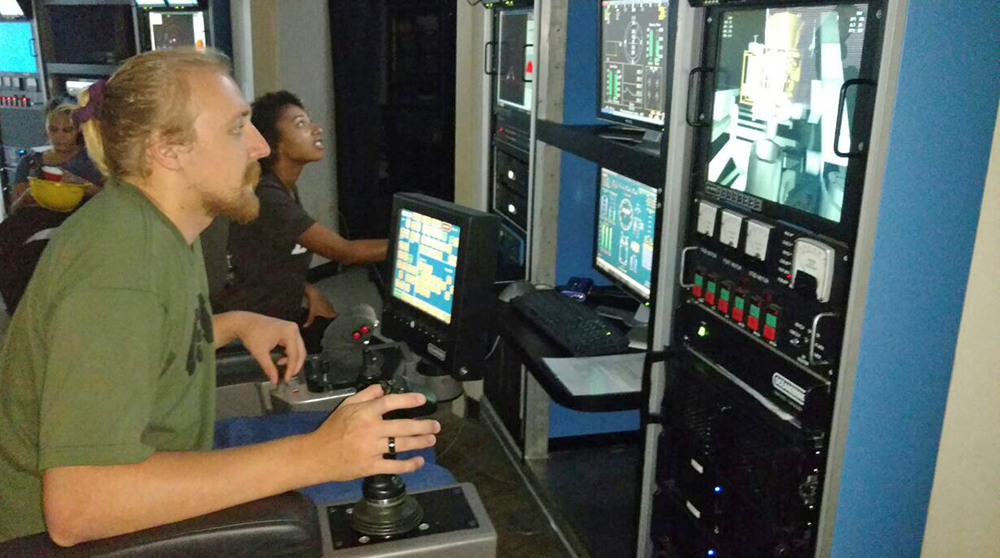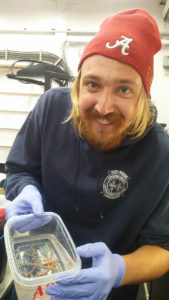Living the Dream Aboard a Research Vessel
July 28, 2017
Many students come to Harvey Mudd College to prepare to pursue their dream jobs.
Some, like James (Mike) Adams ’18, have the opportunity to fulfill their lifelong dreams before they even graduate.
Adams left July 18 for a three-week cruise on board a research vessel in the Gulf of Mexico as part of a research project led by Andrea M. Quattrini, a Harvey Mudd postdoctoral researcher, to study the degree to which coral populations inhabiting low-light and deep-sea ecosystems are connected in the Gulf of Mexico. This research is aimed at helping to conserve and restore vulnerable species that were impacted by the disastrous 2010 Deepwater Horizon oil spill.
“It’s been my dream job since I was about six to be a marine biologist and work on a research vessel,” Adams said. “It’s pretty awesome that I’m going to be able to do that!”
Quattrini works with Catherine S. McFadden, Vivian and D. Kenneth Baker Professor in the Life Sciences, who specializes in using molecular data to study the evolutionary history and relationships among soft coral in various ocean regions. Quattrini’s research is ultimately aimed at helping protect vulnerable marine ecosystems— specifically low-light and deep-sea coral ecosystems—from damage resulting from human activities such as pollution, overexploitation and climate change. After 15 years of using remotely operated vehicles and submersibles to study the various Gulf of Mexico coral ecosystems, this is the first year that Quattrini is unable to make the trip.
“I’m so excited that Mike has the opportunity to go,” said Quattrini.

Adams with a coral specimen.
Adams and other members of the research team will use a remotely operated vehicle controlled from the ship to survey and sample coral communities lying 100 to 2,500 meters below the ocean’s surface. They will collect several different species that occur in these particular depth bands to try and understand their population structure and determine the relative rates and directions of genetic exchange to help gauge the impacts of the Deepwater Horizon oil spill. The largest marine oil spill in history occurred when the Deepwater Horizon oil rig exploded in the Gulf of Mexico off the coast of Louisiana and subsequently sunk. Eleven people were killed and, by the time the well was capped, an estimated 4.9 million barrels of oil had leaked into the Gulf causing extensive damage to marine and wildlife habitats.
The research project is funded by the NOAA (National Oceanic and Atmospheric Administration’s) RESTORE Act Science Program designed to carry out research, observation and monitoring to support the long-term sustainability of the ecosystem, fish stocks, fish habitat and the recreational, commercial and charter-fishing industry in the Gulf of Mexico.
Adams, a joint mathematical and computational biology major, has been working in the McFadden lab since the second semester of his first year and on this particular Gulf of Mexico coral project since last summer.
Aboard the research vessel, Adams will help the chief scientist by annotating the dives. He also is responsible for specimen preservation on board for genetic purposes. Once Adams returns, Quattrini said, the coral specimens will be barcoded using molecular markers to help identify the various species and then understand their population structure. “There will be a lot of molecular work that hopefully Mike will continue next year,” she said.
